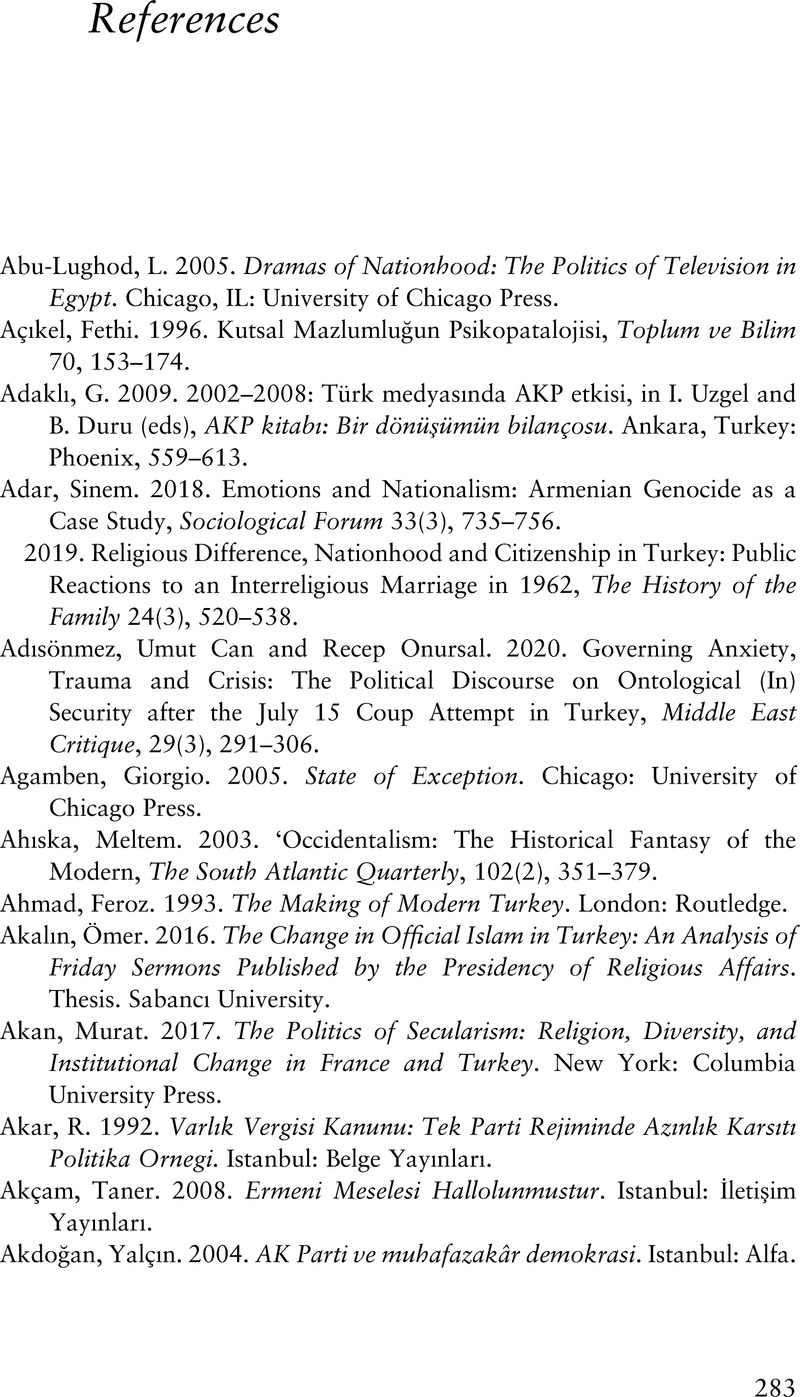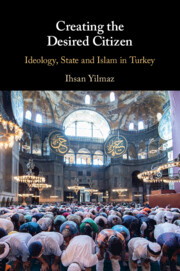Book contents
- Creating the Desired Citizen
- Creating the Desired Citizen
- Copyright page
- Dedication
- Contents
- Preface
- Acknowledgements
- Note on the Text
- List of Abbreviations
- 1 Anxious Nation and Its Ambivalent Westernism
- Part I Kemalism and Its Desired, Undesired, Tolerated Citizens
- Part II Emergence of the Counter-Hegemony: Erdoğanism
- Part III Creating Erdoğanism’s Desired Citizens via Popular Culture and Education
- Part IV Erdoğanism’s Undesired Citizens
- Part V Creating Erdoğanism’s Tolerated Citizens via the Diyanet
- Book part
- Glossary
- References
- Index
- References
References
Published online by Cambridge University Press: 25 May 2021
- Creating the Desired Citizen
- Creating the Desired Citizen
- Copyright page
- Dedication
- Contents
- Preface
- Acknowledgements
- Note on the Text
- List of Abbreviations
- 1 Anxious Nation and Its Ambivalent Westernism
- Part I Kemalism and Its Desired, Undesired, Tolerated Citizens
- Part II Emergence of the Counter-Hegemony: Erdoğanism
- Part III Creating Erdoğanism’s Desired Citizens via Popular Culture and Education
- Part IV Erdoğanism’s Undesired Citizens
- Part V Creating Erdoğanism’s Tolerated Citizens via the Diyanet
- Book part
- Glossary
- References
- Index
- References
Summary

- Type
- Chapter
- Information
- Creating the Desired CitizenIdeology, State and Islam in Turkey, pp. 283 - 324Publisher: Cambridge University PressPrint publication year: 2021



